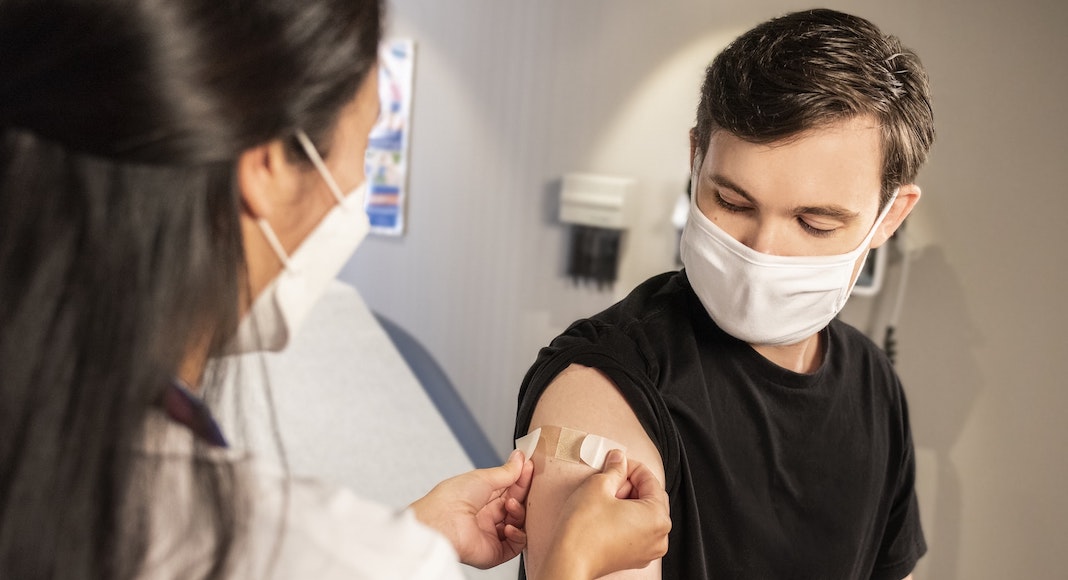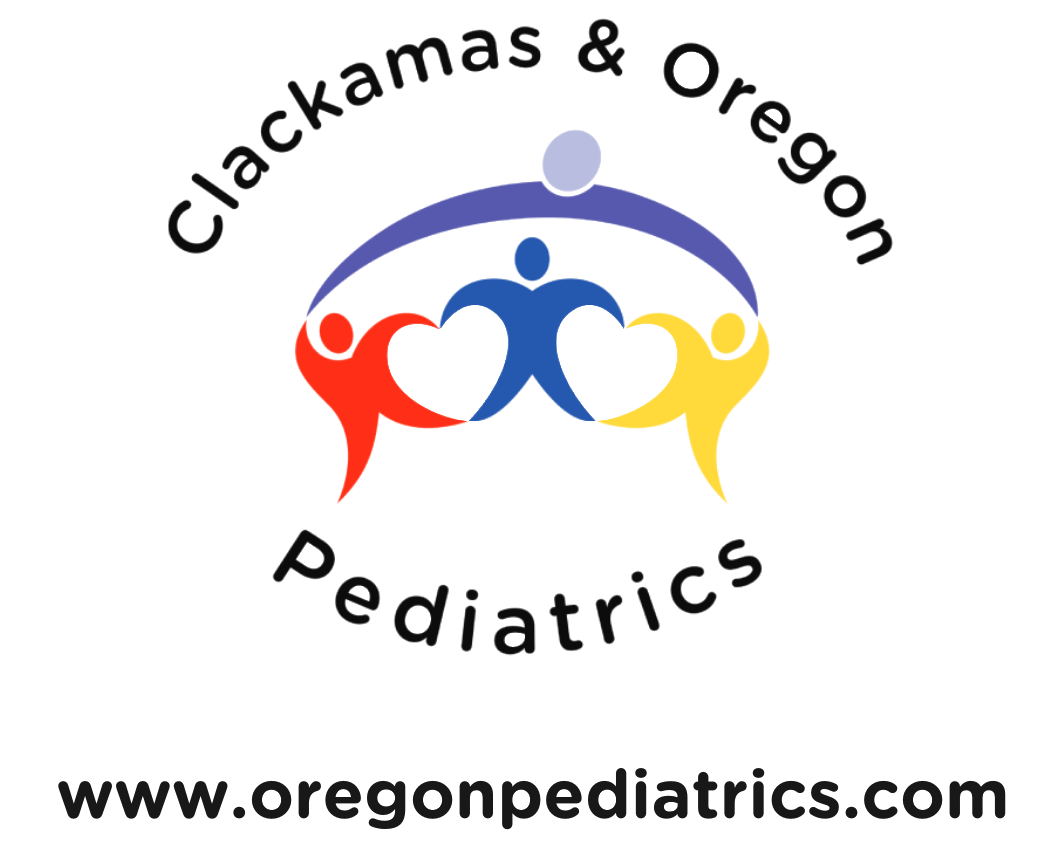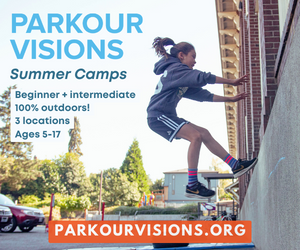 We were grateful for the opportunity to sit down with Ryan Hassan, M.D., M.P.H., of Clackamas and Oregon Pediatrics to get answers to YOUR questions about COVID-19 vaccines. We know that many parents still have questions about COVID-19 vaccines for children. We polled our audience over the last few weeks and found that many questions overlap among families! Dr. Hassan graciously agreed to answer some of our readers’ most frequently asked audience questions.
We were grateful for the opportunity to sit down with Ryan Hassan, M.D., M.P.H., of Clackamas and Oregon Pediatrics to get answers to YOUR questions about COVID-19 vaccines. We know that many parents still have questions about COVID-19 vaccines for children. We polled our audience over the last few weeks and found that many questions overlap among families! Dr. Hassan graciously agreed to answer some of our readers’ most frequently asked audience questions.
 Dr. Hassan is a board-certified pediatrician working at Clackamas and Oregon Pediatrics in Happy Valley, where he lives with his wife, Christen, daughter, Olivia, and the family chihuahua. Dr. Hassan earned a Bachelor’s of Science in Physicals and a Master of Public Health from University of Texas, and then obtained his Medical Degree in 2014 from Texas Tech University Health Sciences Center Paul L. Foster School of Medicine.
Dr. Hassan is a board-certified pediatrician working at Clackamas and Oregon Pediatrics in Happy Valley, where he lives with his wife, Christen, daughter, Olivia, and the family chihuahua. Dr. Hassan earned a Bachelor’s of Science in Physicals and a Master of Public Health from University of Texas, and then obtained his Medical Degree in 2014 from Texas Tech University Health Sciences Center Paul L. Foster School of Medicine.
We know this information will be helpful to Portland families as they make their decisions.
Portland Mom Collective
Hi everybody and welcome. My name is Lee Ann Moyer. I’m the owner of Portland Mom Collective, and I have with me here today Dr. Ryan Hassan, from Clackamas and Oregon pediatrics. This video is recorded in partnership with the US Department of Health and Human Services. We know that many parents still have questions about COVID 19 Vaccines for Children. We took a poll gathered to the questions up and Dr. Hassan is here to help answer them. So, thank you, Dr. Hassan, for being here and welcome.
Dr. Hassan
Thanks very much for having me.
Portland Mom Collective
My pleasure. So, let’s just jump right in and ask I think one of the questions that’s at the top of everyone’s mind, which is: how safe and effective are COVID-19 vaccines for kids?
Dr. Hassan
Well, they’re very safe, and they’re very effective. We know that at least for kids, five and up, they work very well. They have been carefully tested and monitored, and they continue to be carefully monitored, using multiple reporting systems. There have already been more than 26 million kids who’ve gotten a COVID vaccine. And they go through rigorous trials and testing before it’s even approved. And they have to meet the highest standards for safety and effectiveness by set by the FDA and CDC, which is you know, more than can be said for most other medicines, which don’t need to be as safe because they’re given when people are sick, versus vaccines are given when people are healthy, so they need to be even more stringent and more safe, more closely-monitored than our foods as well.
Portland Mom Collective
Okay, I think that’s going to be reassuring to a lot of families. Another question we got was: Can children get natural immunity against COVID instead of that provided by vaccines?
Dr. Hassan
Yeah, so that’s a good question. I like to start way by pointing out that I think the term natural immunity is a bit of a misnomer. I don’t like using it, because the implication is that there’s somehow a difference between immunity from an infection and immunity from a vaccine, and that one is more natural than the other. In reality, when you become immune to something, what happens is your body’s immune system recognizes something for it in your body and creates an immune response and creates antibodies and memory cells. And that is the same process, whether you get exposed to an infectious disease like COVID, or a vaccine to protect against that disease, like the COVID vaccine. So, it’s not as the one process is artificial or not, your body creates the same natural immune response either way.
What we know is that when you get infected with COVID, you do get an immune response to it. But it’s very varied, what that will be. We’ve seen very different immune responses from different people, it’s not the same. Depending on who you are, you might have a more robust or less robust immune response. We also know that regardless of how you react to COVID, if you get sick, your immunity does wane over time, and you are able to get sick again. And we’ve seen many people with repeat infections, and you aren’t protected for from severe illness.
By contrast, we know that if you get a COVID vaccine, you have a more homogenous immune response, meaning everyone’s going to have a pretty similar immune response to it. And that’s a very good response that has better long-term protection – especially if you get a booster dose – from any infection, and, even more importantly, significant protection long-term with or without a booster from severe disease. So that’s, I think, the important difference. It’s better to, in my opinion, get a vaccine where you know you’re going to be protected and not take the risk of an infection that, hopefully will be minor and still be annoying, or, if you’re unlucky, be more serious.
Portland Mom Collective
Yeah, okay. Should we be concerned about COVID vaccine side effects for kids, including the risk of myocarditis?
Dr. Hassan
So, it’s important to be mindful of the risks of the side effects from the vaccine, but to weigh those risks against the risk of infection. We know that COVID is a greater threat to your kids – to our kids – than any potential risks from vaccine side effects. Some kids have no side effects at all. Most common side effects kids do get are going to be a sore arm or tiredness or maybe headache for a few days. Symptoms from COVID can last much longer and often do.
For the vaccine, there are rare cases – very rare cases – of myocarditis, inflammation around the heart, especially in kids, mainly boys aged 12 to 17. But even in those highest risk kiddos — boys from 12 to 17 — they are much higher risk of being hospitalized from COVID, if unvaccinated, or getting much more severe myocarditis from COVID if unvaccinated. Which is why the CDC and the American Academy of Pediatrics, both recommend that all children who are eligible get a COVID vaccine as soon as they can.
Portland Mom Collective
Okay, all right. That’s great information. I was wondering how well are we seeing the five to 11 vaccines holding up and will this group need boosters?
Dr. Hassan
Yeah, so we’re still learning. The research is ongoing. And so, the recommendations are going to continue to be updated to reflect our most up-to-date knowledge. So, as we learn more, we modify our recommendations to reflect what we know is safest. Right now, only kids 12 and up can get a Pfizer booster. As we see how immunity lasts, how well immunity lasts longer-term, we may or may not decide that younger children also need a booster. As of now, hard to say.
Portland Mom Collective
Okay. Let’s talk a little bit about sort of how we go about things. Should unvaccinated children remain masked up even among vaccinated company?
Dr. Hassan
So bottom line, I would say generally, yes. It’s always going to be kind of a balance of your comfort level and the risks. So, masks can protect you, they do protect you and your child, and others from COVID, especially if the COVID risk in your community is high. Now the CDC has a really helpful tool and map where you can see your up-to-date, county-level transmission data, so you can see exactly how high the risk of COVID is in your county. And it can be helpful to talk with your doctor personally about how high is the risk right now, and how much benefit would there be for masking. But in general, I would say, it’s always going to be beneficial to mask. The main downside is just you know, it’s a little uncomfortable, maybe inconvenient, but it always is going to reduce the risks. So personally, I’m still masking, you know, whenever I’m out and in crowded places or indoors, even though our risk is low here.
Portland Mom Collective
Well, that goes a little bit to a follow-up question, which was: Can we go about normally after young children are fully vaccinated, as in no masks?
Dr. Hassan
Yeah, I think there’s a lot that goes into what “normal” means these days. But I think, I mean, first off, CDC did recently release a new tool as I just mentioned that shows what your community level risk is. Here in my county of Clackamas, it’s pretty low right now. But it’ll show if it’s low, medium, or high, and that can help you decide whether, you know, it’s you want to still wear a mask or not. Because, with a vaccine, your risk is certainly lower, and so it’s safer to be around to be out in public and around others without a mask than it would otherwise. But as we know, we you can still get sick from COVID if you are vaccinated. So, I think the things to consider are: remembering you are protected from severe illness, so, you know, what’s your tolerance for more mild illness, which could happen if you are exposed to COVID while vaccinated. And then, do you have people around you who are higher-risk, even despite being vaccinated, or who are unvaccinated for whatever reason? Do you have people with chronic medical conditions or older people that you need to spend time in close proximity to, who might not do as well if they get sick if they’re exposed to you? So those are some of the things I take into account, you know, when deciding when and whether to mask.
Portland Mom Collective
Okay, all right. All great feedback. I think we have time for one more question. So, what is the current position on regular annual COVID vaccines? Will it be similar to the flu shot?
Dr. Hassan
Yeah, so it’s, it’s hard to know right now right now. As I said, we’re still learning more, the research is ongoing. The recommendations are continue to reflect our latest knowledge. It’s possible that we may need more regular booster doses in the future. Right now, you know, it’s not clear, it doesn’t seem like it to me, but you know, it’s really going to depend on how this pandemic continues to evolve, what our transmission levels turn into in the coming months, what new variants arise. Any new variants that come up are going to have to be more infectious than prior variants, because that’s how they overtake prior variants. We don’t know how severe they might be. They hopefully will be less severe, but they could be more severe. Those things are going to kind of determine, you know, how whether we need ongoing boosters. And, of course, how well the long-term immunity lasts after a single booster, which again, we’re also still learning. So, hard to know right now. We’re going to have to kind of see what the data shows us.
Portland Mom Collective
Okay. Well, thank you for answering some of those questions that we gathered up. We will be publishing a recap of this interview for everyone to reference on our website, so keep an eye out for that shortly. We’ll also include information about Dr. Hassan and Clackamas and Oregon pediatrics, so you can know where to find them. And Dr. Hassan, just thank you so much for taking some time out of your day to share your knowledge with us.
Dr. Hassan
Yeah, my pleasure. Thanks for having me.
Portland Mom Collective
Have a good one.
Catch the full interview here:


















